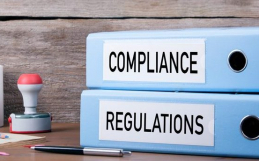Each year the ACCC sets enforcement and compliance priorities that are taken into account when pursuing competition and consumer matters. In 2016, the ACCC warned that it would continue to take a strong line on cartel conduct (see our article – ACCC 2016 Enforcement Priorities). ACCC has stayed strong to its word – between January and June 2016 ACCC has issued $45.7 million in fines against parties who engaged in cartel conducts.
What is cartel conduct?
Under the Competition and Consumer Act (2010) (Cth) (CCA) companies are prevented from acting together instead of competing with each other. Agreements to act together are designed to increase profits of cartel members. Cartel conduct can occur by:
- price fixing;
- allocating customers, supplier or territories;
- rigging bids or collusive tendering; or
- controlling the output or limiting the amounts of goods and services available to buyers.
A corporation who engages in cartel conduct can be fined the greater of:
- $10 million;
- three times the benefits obtained; and
- if the benefits cannot be obtained, 10% of the defendant’s turnover during the 12-month period ending at the end of the month in which the corporation committed or began committing the offence.
Individuals who contravene these provisions can face prison sentences for up to ten years and fines of up to $360,000 per contravention.
Recent War Stories
Shipping Cartel: Nippon Yusen Kabushiki Kaishi (NYK)
Between 2009 and 2012 Kaishi was involved in agreements to fix prices, allocate customers and shipping routes and rig bids in connection with international ocean shipments of transportation vehicles to Australia.
Following an investigation by the ACCC, Nippon Yusen Kabushiki Kaishi (a global shipping company based in Japan) pleaded guilty on 18 July 2016 to criminal cartel conduct charges.
This is the first time a criminal cartel conduct matter has been brought in Australia against a corporation since the introduction of Australia’s competition laws in 2009. NYK is still awaiting judgment in Australia but individuals and companies involved in this cartel have already faced prosecution in the United States, Japan and Canada. In the United States, NYK was fined around US$59.4 million and an involved executive was sentenced to 15 months-jail time.
The fines and jail sentences are expected to be significant.
Laundry Detergent Cartel: Colgate-Palmolive, PZ Cussons, Unilever & Woolworths
In early 2009, Colgate-Palmolive, PZ Cuzzons and Unilever agreed to cease supplying standard concentrate laundry detergents and only supply ultra concentrates to Woolworths.
Following proceedings brought by the ACCC and admissions by Colgate, the Federal Court on 28 April 2016, ordered Colgate-Palmolive to pay $18 million for cartel conduct. $12 million of that amount for involvement in a co-ordinated switch from standard concentrate laundry detergents to ultra concentrates and $6 million for sharing pricing information relating to its laundry detergents, including proposed price increases.
Woolworths was penalised $9 million for its involvement in the laundry detergent cartel. This penalty is the largest ACCC has obtained against an accessory to contraventions of the CCA.
The proceedings between ACCC and Colgate-Palmolive, PZ Cussons and Unilever have been on foot since 2013. PZ Cussons faced court on 7 June and is awaiting the outcome while Unilever was granted immunity under the ACCC’s Immunity Policy.
Cable Cartel: Prysmian Cavi E Sistemi S.R.L. (Prysmian)
On 22 July 2016, Italian company, Prysmian, was found to have contravened price-fixing and market sharing provisions in its bid to supply high voltage cables in 2003 in Australia for the Snowy Hydro Project. This conduct was part of a wider foreign cartel supplying land and submarine cables worldwide.
Parties in the cartel arrangement decided on a member to be the successful tenderer for a particular project. Other members would ensure that they did not submit a lower price than the chosen member. ACCC alleged that the Snowy Hydro Project Agreement gave effect to this cartel arrangement, ensuring that Prysmian submitted the most attractive tender.
Prysmian’s penalties are to be determined at a future date. This case is a reminder that ACCC will enforce cartel laws in relation to arrangements that are made outside of Australia but have the potential to affect Australian businesses and consumers.
Lessons to Learn
Contravene cartel conduct provisions of the CCA and you will pay the price! These recent proceedings initiated by the ACCC are proof that penalties for contravening cartel conduct provisions are severe and could even result in criminal convictions.







